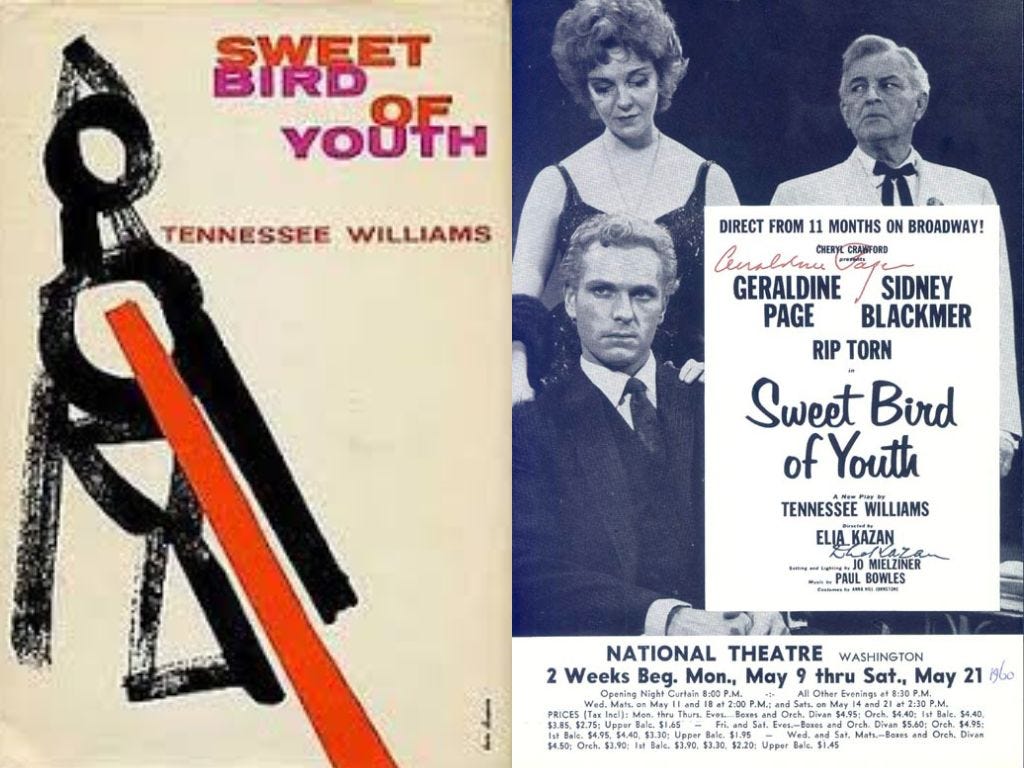The Hardest Fork: Part One
Two years until Artificial Super Intelligence? What does this mean for us?
Rainer Maria Rilke reminds us: “Wishes are recollections coming from the future.”
Also: “In one creative thought a thousand forgotten nights of love come to life again and fill it with majesty and exaltation.”
Twice this week, I went to a one-man show based on the poet’s work, Rilke: One Million Words, performed by a Brazilian actor Ivo Müller. The show had layers of significance for me, partly because Rilke is one of my favorite authors, but also because the theater was in an old Chelsea brownstone where I spent a good part of my adolescence.
Back then, it was the home of the actors Geraldine Page and Rip Torn, who met when they starred together in the Tennessee Wiliams play, Sweet Bird of Youth. Their identical twin sons, Jon and Tony Torn, were my best friends in grade school and high school. Together, we were eccentric nerdy kids who wrote poetry, attended foreign film retrospectives at revival houses, and fanatically played Dungeons and Dragons. This was all so far back in time — yet barely a Proust-ian instant ago.
The Rilke play offered a fully analogue experience. Watching it a second time, however, I started to brood on the virtual: On AI and humanity’s future. I find Rilke’s poetry a rapturous celebration of sensuous language and depth perception, infused with solitude and slowness. Rilke wrote in Letters to a Young Poet:
To let each impression and each embryo of a feeling come to completion, entirely in itself, in the dark, in the unsayable, the unconscious, beyond the reach of one’s own understanding, and with deep humility and patience to wait for the hour when a new clarity is born: this alone is what it means to live as an artist: in understanding as in creating.
In this there is no measuring with time, a year doesn’t matter, and ten years are nothing. Being an artist means: not numbering and counting, but ripening like a tree, which doesn’t force its sap, and stands confidently in the storms of spring, not afraid that afterward summer may not come. It does come. But it comes only to those who are patient, who are there as if eternity lay before them, so unconcernedly silent and vast.
This type of sustained attention seems increasingly rare these days — almost beyond our cognitive reach — due to the fragmenting impact of social media, the anxious acceleration, the machinery of distraction. As a society, we rush in the wrong direction: We seem to be getting stupider as we plummet toward the abyss.
On top of the uncertainty caused by the too-rapid evolution of AI and all of the questions it raises about our future, we also appear to be witnessing the unraveling of the United States. We find ourselves on a suicide march toward a White Christian version of a Sharia state, controlled by a vengeful despot and his power-mad accomplices, who seek to establish entrenched autocracy here.
I just caught a recent interview with Dario Amodei, the CEO of Anthropic, from Davos. Amodei seems more thoughtful and at least vaguely well-meaning than some of the other AI CEOs. A number of people in the upper echelons of the tech industry, including Amodei, now believe AI will outperform humans in all domains of intelligence and reasoning in just a few years:
“I don't know if it'll be 2027. I think it's plausible it could be longer than that. I don't think it will be a whole bunch longer than that when AI systems are better than humans at almost everything: Better than almost all humans at almost everything, and then eventually better at all humans at everything. Even robotics: We make good enough AI systems, they'll enable us to make better robots. And so, when that happens, we will need to have a conversation at places like this about how do we organize our economy, right? How do humans find meaning, right? There are a lot of assumptions we made when humans were the most intelligent species on the planet, um, that are going to be invalidated by what's happening with AI.”
According to a recent McKinsey report, by 2030, AI may eliminate as many as 800 million jobs. But this projection may be conservative. Similarly, Leopold Aschenbrenner, who works on alignment for OpenAI writes (from Situational Awareness: The Decade Ahead):
The AGI race has begun. We are building machines that can think and reason. By 2025/26, these machines will outpace many college graduates. By the end of the decade, they will be smarter than you or I; we will have superintelligence, in the true sense of the word. Along the way, national security forces not seen in half a century will be unleashed, and before long, The Project will be on. If we’re lucky, we’ll be in an all-out race with the CCP; if we’re unlucky, an all-out war.
Amodei recognizes the dangerous possibility that AI will unleash an all-out class war.
Keep reading with a 7-day free trial
Subscribe to Liminal News With Daniel Pinchbeck to keep reading this post and get 7 days of free access to the full post archives.




